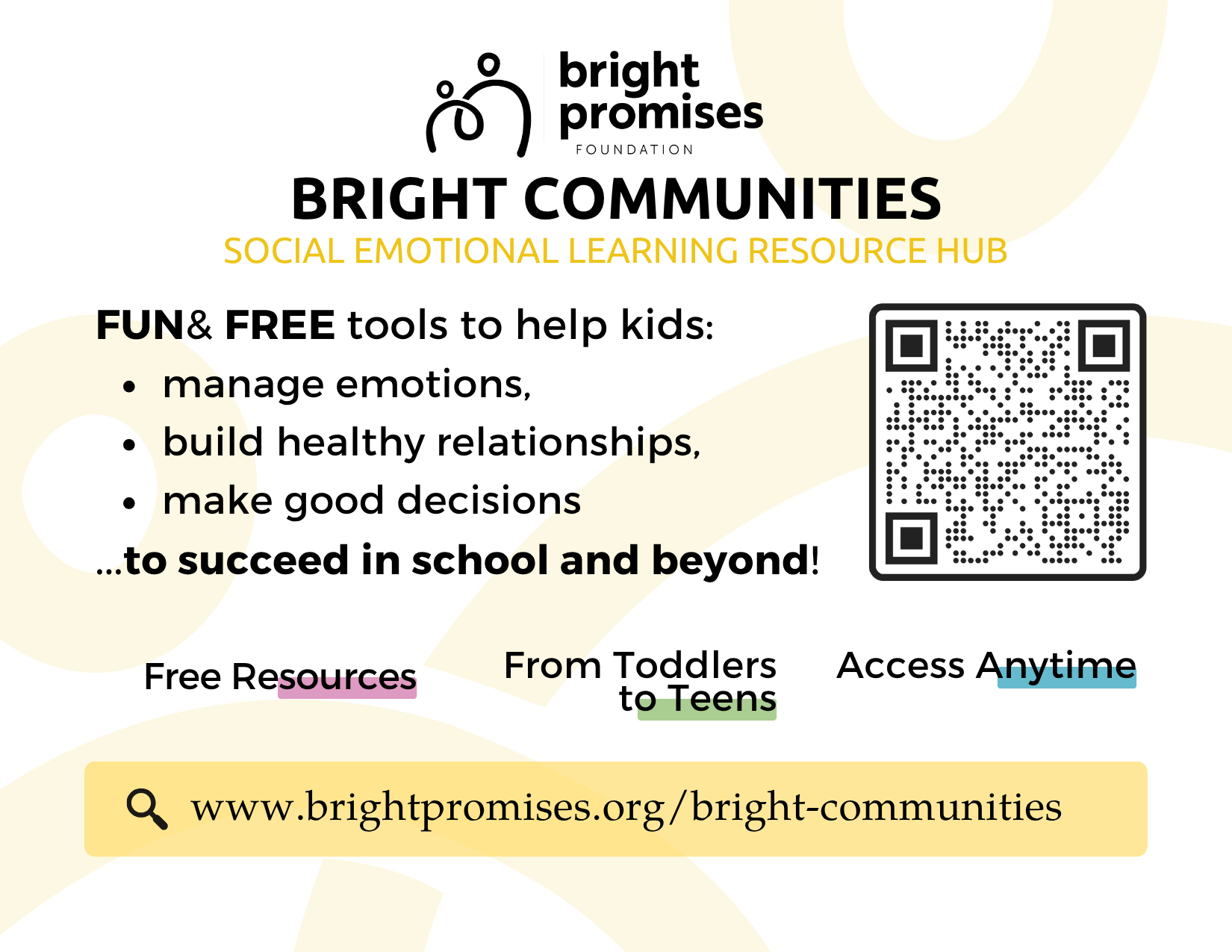Measuring Impact: Why (and How) We Evaluate
Why We Evaluate: An Interview with the Expert Evaluation Team from Become Inc.

Evaluation is a critical part of our approach. Because we are often among the first funders focused on a particular issue in Metropolitan Chicago, evaluation helps us to identify what “success” means for different partners serving diverse children and families.
Recently, Bright Promises Foundation had a conversation with Dr. Dominica McBride, Founder of Become Inc., a Culturally Responsive Community Development evaluation firm, and Evaluation Specialist Jennifer LoPiccolo, MSW, who is leading the evaluation of Bright Promises’ SEL@Home program. We asked Dr. McBride and Jennifer to share their expertise about the role of evaluation in creating more opportunities for every child in Metropolitan Chicago to reach their full promise and potential.
- Why do you think program evaluation is important?
We use Culturally Responsive Evaluation (CRE) to approach all program evaluations, which is a framework focused on facilitating social change. Initially, evaluation is an opportunity for service providers to learn and discover what’s working well and where there are opportunities for improvement within their work. It's also important because CRE prioritizes the perspective of the community members most impacted by a program's services, recognizing the participants’ experience must inform organizations.
Additionally, at BECOME, we see evaluation as critical to both programs’ continual growth and the broader narrative surrounding the social issues being addressed. Data findings can be thoughtfully used to inform program considerations, the broader non-profit sector, local politicians, and other decision makers, so that what direct service providers are learning, and most importantly, what the community is experiencing gains the power.
- Why is it valuable to bring practitioners and service providers together to share knowledge?
One of the benefits of sharing knowledge on this work, especially among professionals in various roles, is that it allows practitioners and service providers to think outside the context of their organization and critically reflect on their processes with the help of new thought partners.
Last night, we brought together ten grantees dedicated to equipping parents with social emotional learning skills at home to ensure their children thrive. Practitioners and grant managers began to exchange ideas and gain new perspective on their programming through their conversations, which was a prime example of how connecting professionals around this work can be mutually beneficial.
- How is evaluation linked to creating sustainable outcomes?
Bright Promises Foundation cares about the sustainability of this work and creating the conditions for children, parents, and caregivers to flourish in the long-term, which means the Foundation is interested in learning about practitioners' successes and failures, so that they can play a pivotal role in building a better reality for all families.
BECOME loves working with Bright Promises Foundation because it's clear that not only our vision in creating a more socially just Chicago and world is shared, but our partnership is equally valued. Bright Promises Foundation is truly committed to the under- recognized issues that they are investing in, such as Social Emotional Learning at Home, and discovering the most effective practices in this field to spread awareness widely.
Why We Evaluate: An Interview with the Expert Evaluation Team from Become Inc.

Evaluation is a critical part of our approach. Because we are often among the first funders focused on a particular issue in Metropolitan Chicago, evaluation helps us to identify what “success” means for different partners serving diverse children and families.
Recently, Bright Promises Foundation had a conversation with Dr. Dominica McBride, Founder of Become Inc., a Culturally Responsive Community Development evaluation firm, and Evaluation Specialist Jennifer LoPiccolo, MSW, who is leading the evaluation of Bright Promises’ SEL@Home program. We asked Dr. McBride and Jennifer to share their expertise about the role of evaluation in creating more opportunities for every child in Metropolitan Chicago to reach their full promise and potential.
- Why do you think program evaluation is important?
We use Culturally Responsive Evaluation (CRE) to approach all program evaluations, which is a framework focused on facilitating social change. Initially, evaluation is an opportunity for service providers to learn and discover what’s working well and where there are opportunities for improvement within their work. It's also important because CRE prioritizes the perspective of the community members most impacted by a program's services, recognizing the participants’ experience must inform organizations.
Additionally, at BECOME, we see evaluation as critical to both programs’ continual growth and the broader narrative surrounding the social issues being addressed. Data findings can be thoughtfully used to inform program considerations, the broader non-profit sector, local politicians, and other decision makers, so that what direct service providers are learning, and most importantly, what the community is experiencing gains the power.
- Why is it valuable to bring practitioners and service providers together to share knowledge?
One of the benefits of sharing knowledge on this work, especially among professionals in various roles, is that it allows practitioners and service providers to think outside the context of their organization and critically reflect on their processes with the help of new thought partners.
Last night, we brought together ten grantees dedicated to equipping parents with social emotional learning skills at home to ensure their children thrive. Practitioners and grant managers began to exchange ideas and gain new perspective on their programming through their conversations, which was a prime example of how connecting professionals around this work can be mutually beneficial.
- How is evaluation linked to creating sustainable outcomes?
Bright Promises Foundation cares about the sustainability of this work and creating the conditions for children, parents, and caregivers to flourish in the long-term, which means the Foundation is interested in learning about practitioners' successes and failures, so that they can play a pivotal role in building a better reality for all families.
BECOME loves working with Bright Promises Foundation because it's clear that not only our vision in creating a more socially just Chicago and world is shared, but our partnership is equally valued. Bright Promises Foundation is truly committed to the under- recognized issues that they are investing in, such as Social Emotional Learning at Home, and discovering the most effective practices in this field to spread awareness widely.








.svg)

